This post has not been edited by the GamesBeat staff. Opinions by GamesBeat community writers do not necessarily reflect those of the staff.
The Day the Earth Stood Still, Terminator: Salvation, and Pulse (renamed from Kairo for the U.S.) all have something in common: They’re all horrible, big-Hollywood remakes of or revisits to well-loved films.
In Day the Earth Stood Still, screenplay writer David Scarpa left out the key moral message of the original 1951 feature — that humans had better mend their violent ways or face extinction. Terminator: Salvation forgot about the intriguing character development of past cybernetic excursions on the big screen. And Kairo went from an intense, exceptionally mortifying Japanese horror flick about loneliness and alienation in an era of unprecedented mass communication to a run-of-the-mill, teenage scare fest.
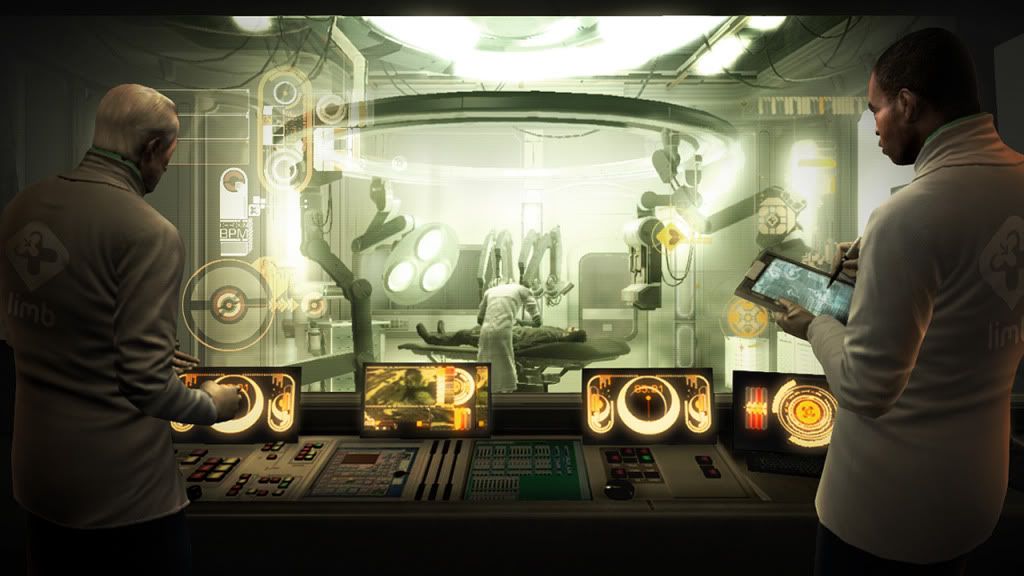
At this year’s E3, I saw three titles that each aim to reboot a well-regarded series. Square Enix demoed Deus Ex: Human Revolution and Front Mission: Evolved (OK — Evolved isn’t exactly a reboot, but we haven’t seen a new entry in the series since 2004’s Front Mission 4 in North America), and 2K Games showed off XCOM (without a hyphen).
So, how do they stand up? Will they be more like Pulse, or will their respective developers deliver us a Rocky Balboa (Sylvester Stallone's critically acclaimed return to the Italian Stallion)?
Deus Ex: Human Revolution
Set in the year 2027, Deus Ex is a tale of technological innovation and corporate conspiracy. You take control of Adam Jensen, a mechanically augmented security officer, in this cyberpunk, first-person adventure.
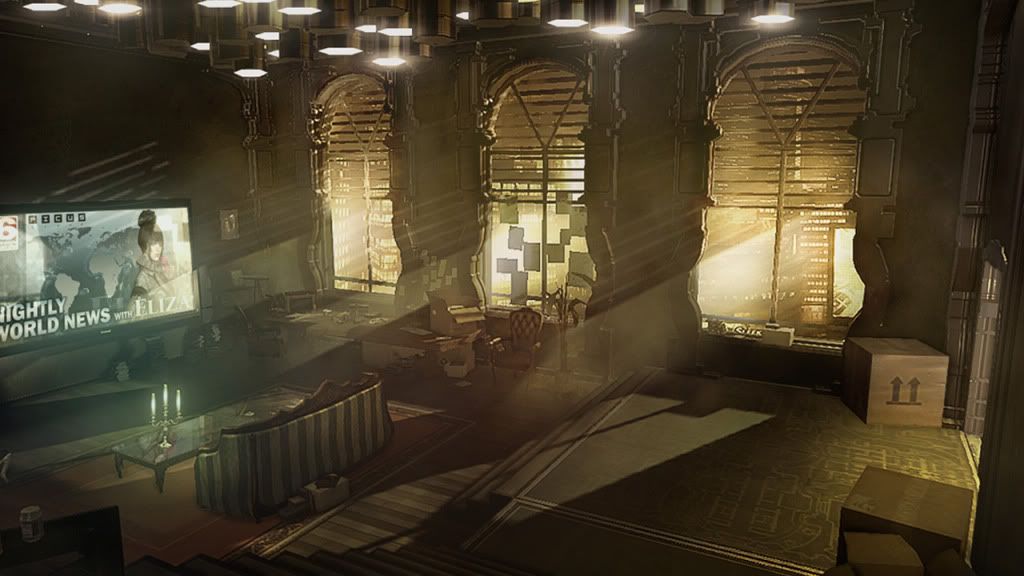
What I liked: The Deus Ex demo portrayed a fully realized world with non-player characters independently tending to their own business. They’ll also react to your actions, such as whether you’ve holstered your weapon.
The four “pillars” as described by developer Eidos Montreal — combat, stealth, social, and hacking — appear to retain the original’s focus on multiple solutions to any single problem. I also like that you can permanently close off an option through repeated failure, thus forcing you to try something different.
In an attempt to uncover the location of a suspected hacker, our hero tries to convince a particular shady-looking individual to schedule a meeting with a man who knows something. When that fails, Jensen instead hacks a security panel and slips through the shadows to observe the crime lord unseen.
Alternatively, we could have blasted our way through in first-person combat, which Eidos portrayed in a rather exhilarating face off against a mechanized walker armed with machine guns and rockets. Each avenue of potential success is always initially open for the player to exploit.
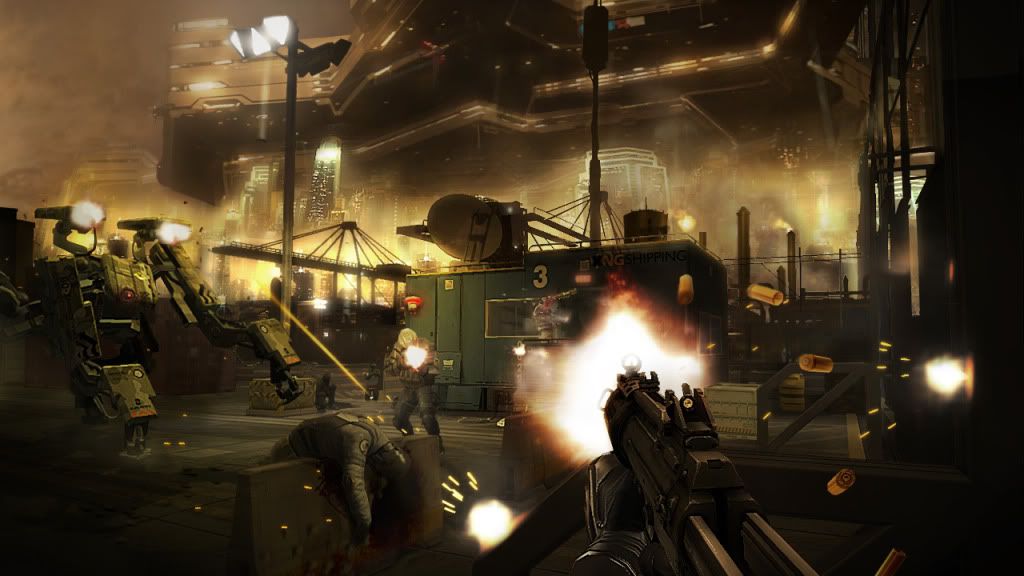
What concerns me: Cinematic takedowns. Square Enix’s demo showed this feature off with abandon, and I’m worried about how it may lessen the game’s difficulty.
In one part, our protagonist jumps down from a great height into the middle of four enemies, throws explosives in a circle around him, and annihilates the entire threat. Certainly, the maneuver brought my inner child to the surface, but it looked all too easy.
On a related note, Deus Ex alternates between first- and third-person quite frequently. The cinematic takedowns are one such example; the view will also switch when going into cover or using the environment, such as ascending a ladder. The back-and-forth seemed a little disorientating during the demo.
getVideo();
Front Mission: Evolved
Like previous games in the series, Evolved promises to play with themes of war and conflict in an engaging narrative of opposing political regimes vying for power. Unlike the best-regarded entries, Evolved is a third-person shooter of primarily mech-based (and a little soldier-level) combat.
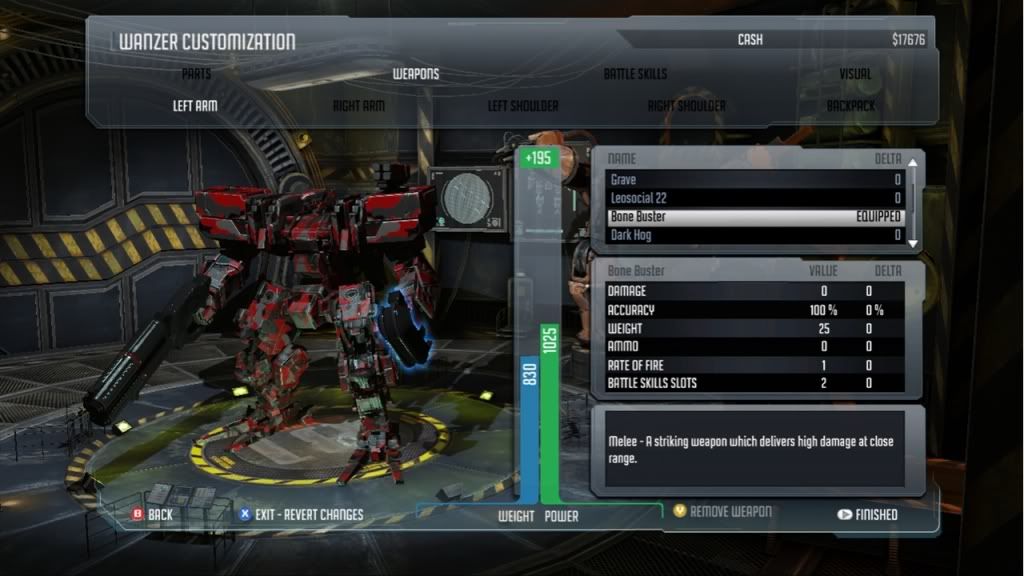
What I liked: Multiplayer. Most Front Mission games are single-player only, although the most recent port of Front Mission 1st to the Nintendo DS allowed players to pit their customized Wanzers against one another in a one-on-one, turn-based fight.
Evolved takes multiplayer into an arena where teams of Wanzers duke it out in several different play modes — deathmatch, team deathmatch, domination, and supremacy. Domination is a sort of map control via acquired turrets, while supremacy is more like a variance on king of the hill.
I also had an opportunity to play the PC version of the game in 3D (developer Double Helix has no plans for 3D console versions), and I’m impressed. The added depth perception works well with a third-person shooter like Evolved.
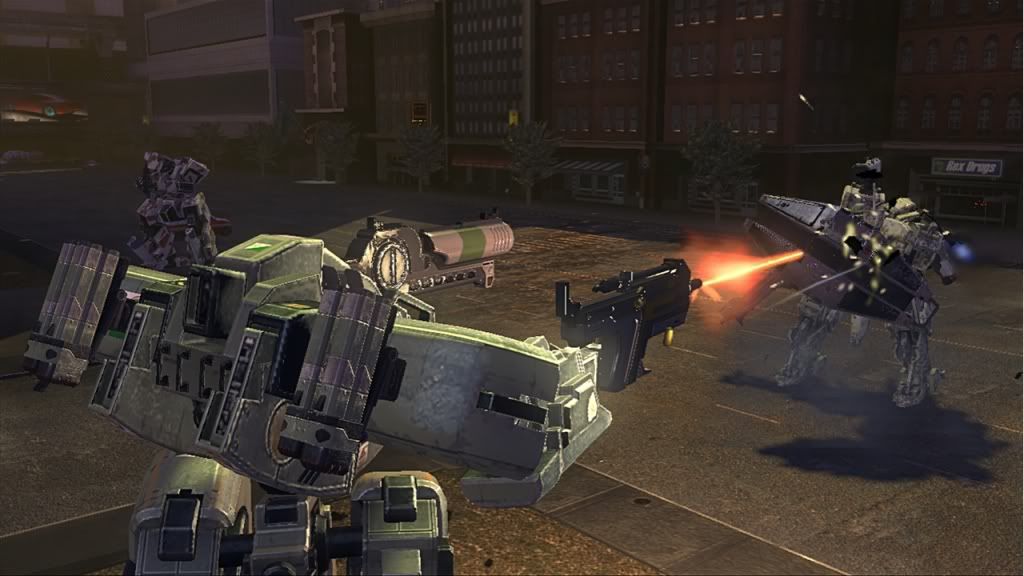
What concerns me: Although Evolved will retain some of the tactical elements from the original games, Double Helix has made a few concessions. You’ll play the single-player game as a part of a squad, but you have no control over any of your teammates. That’s a real bummer, since squad-based play is a defining characteristic of the series.
Evolved also utilizes a health-regen mechanic for Wanzers in a limited way — the mech’s torso section will slowly self repair. Double Helix claims that limbs will not regenerate in the final version of the game, but I did notice limb repair in the floor demo.
If an enemy does completely destroy a limb, though, you’ll retain some functionality, such as the ability to use equipped weapons. Previously, the loss of an arm in Front Mission meant the loss of the installed offensive systems for the rest of the level.
Although such a situation will mean that damage, accuracy, and/or mobility decrease, Front Mission games have never encouraged the run-and-gun approach, which such lenient consequences facilitate; rather, the series is instead about smart, tactical maneuvering.
XCOM
The Extraterrestrial Combat Unit — or X-Com — is the basis for 2K Games’ reboot. The series’ best entries are a beautiful mix of real-time resource management and turn-based, tactical combat where the player commands a squad of soldiers. XCOM, on the other hand, is a narrative-driven, first-person shooter, a genre that 2K has much experience with.
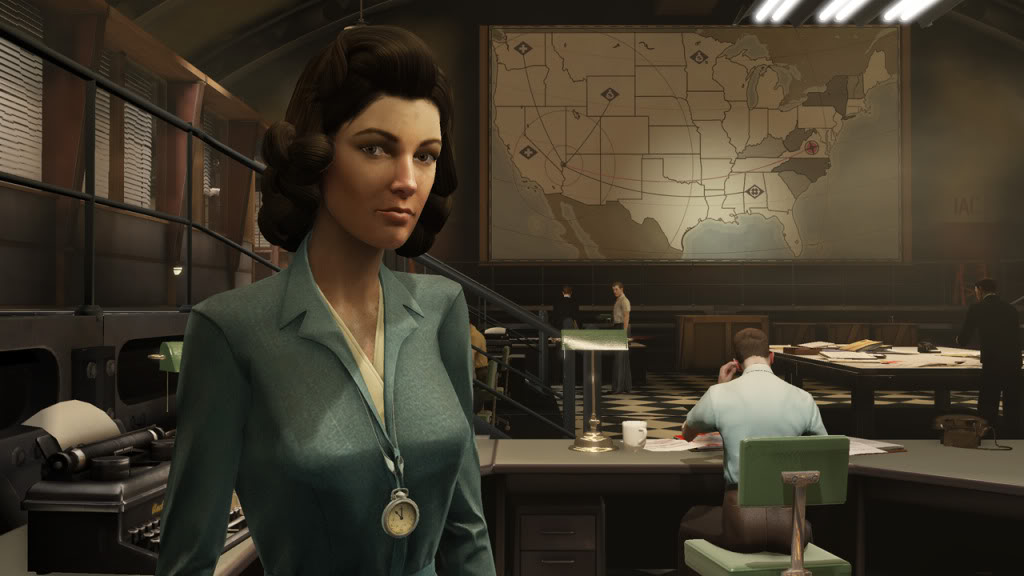
What I liked: The developer claimed a focus on tension and fear of the unknown, both of which were central to the original strategy games. The gameplay demo bore that out, too, especially so when the flying Titan appears out of — literally — thin air and decimates everything in its path in an attempt to snuff you out.
But 2K has revealed little information about the game, so I prepared myself for the circumstance that E3 would be no different. As the developer gave us the sneak peek, I kept my eyes open for clues. First, I noticed a fighter jet in the hanger. Will interception of flying, alien craft return?
The big piece of information, though, was the strategic map of the entire U.S., which colored each state of the union differently to indicate the amount of allocated funds based on that state’s satisfaction with your performance. That sounds an awful lot like the financial system of the originals.
I also noticed three mission types: rescue, anomaly, and unknown. Rescue is obviously the terror-site equivalent to UFO Defense and Terror from the Deep, while anomaly is likely similar to crash-site investigations. Unknown, well, is unknown. I’m intrigued, though.
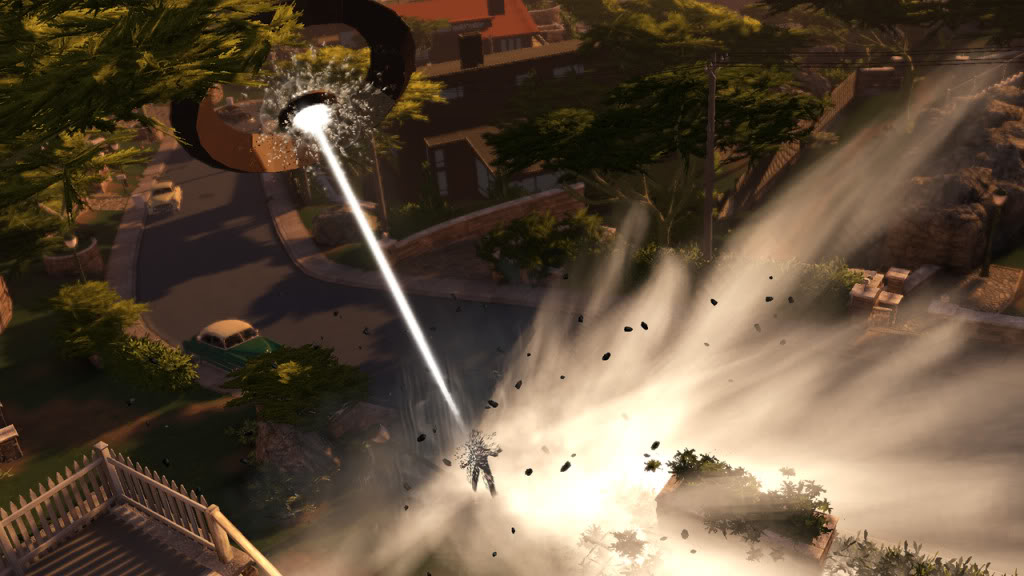
What concerns me: I was right — the E3 demo revealed little more than the official trailer and left me with a ton of questions — the biggest of which is about the squad mechanics. I noticed no ability to switch between teammates or even issue commands, which lead me to believe that your fellow FBI agents will likely be autonomous, A.I. allies. Producer Drew Smith refused comment when I asked him for clarification at the 2K booth.
I also failed to notice any destructible terrain; however, deformable terrain appears to be in. The black blobs burst through walls, and the player’s weapons generally made a mess of things, but I didn’t see any new, tactical pathways open up from such carnage.
Research concerns me, too. 2K mentioned that the player will unlock new, custom weapons to deal with new types of aliens as they appear, but I’m a little worried that it’s all going to be an incredibly linear affair. The beauty of UFO Defense, for instance, was that the player needed to discover the best research path on his own, which added an exploratory layer to the tech tree.
Like Stallone's attempts to relive his most beloved roles, these games don't seem to perfectly recapture the glory of yesteryear.
In the cases of Evolved and XCOM, I get a clear sense that the developers for each have dropped some strategic and tactical elements in order to broaden the appeal of those games to more mainstream audiences. Deus Ex seems to be closer to what made the original such an interesting hodgepodge of gameplay systems, but I still have a few concerns with the overall execution thus far.
They may not be Rocky Balboas, but I’ll bet we have a Rambo (Stallone's 2008 remake that received mixed reception) in there somewhere.
